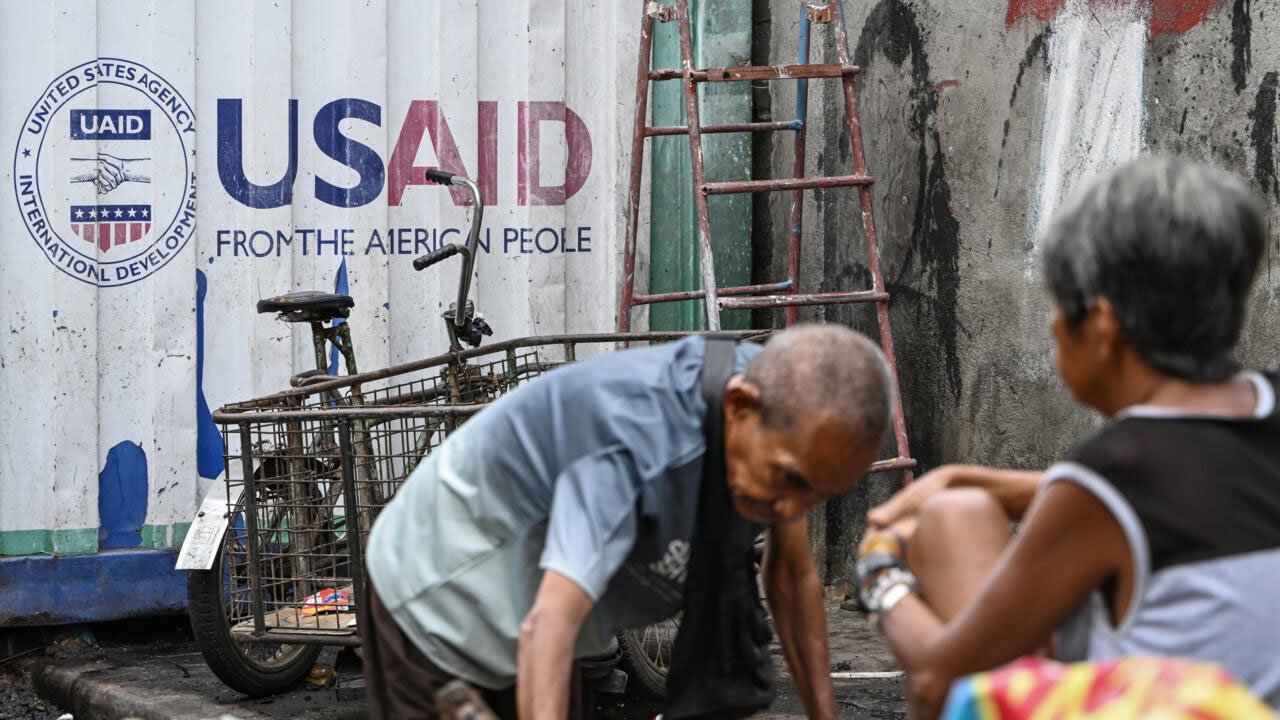Sarmada (Syria), Feb 13: In the northern Syrian town of Sarmada, Dr. Mohammad Fares recently opened a clinic that used to be filled with patients. Today, it stands empty, its shelves bearing only a few boxes of bandages and expired medications.
This stark reality follows the Trump administration’s decision to suspend U.S. foreign aid, as announced last month. The U.S. Agency for International Development (USAID) has issued stop-work orders during a 90-day review prompted by claims of wasteful expenditures.
Dr. Fares was previously involved with three clinics operated by Médecins du Monde (Doctors of the World), providing free healthcare to the displaced populations in northern Syria. This area had been a major rebel stronghold until former President Bashar Assad’s fall in December, offering refuge to millions escaping years of civil conflict.
The already dire conditions in these camps worsened in 2023 after a devastating 7.8 magnitude earthquake struck Turkey and northern Syria. While some displaced Syrians have attempted to return home, many find that their homes no longer exist.
Dr. Fares’s clinic in Sarmada previously served 16 camps in the region, supporting about 35,000 people. Following the aid suspension, ten clinics funded by USAID have shut down, and Doctors of the World has laid off 184 staff members, according to organizational officials.
“If support isn’t reinstated, a major disaster is imminent, seriously affecting vulnerable populations,” warned Dr. Fares, head of the organization’s medical programs. “The operational costs of clinics are significantly lower than those of hospitals. Ceasing these clinics will increase the burden on emergency hospitals and other healthcare services.”
This part of Syria lacks centralized government healthcare, making the community heavily reliant on non-profit organizations, thus intensifying the adverse impact of the U.S. funding cuts, according to aid workers and experts.
“Our analysis indicates that removing all USAID support in Syria would equate to a devastating shock of 5% to its already ailing economy. This represents one of the most significant impacts on any recipient,” stated Ian Mitchell, senior policy fellow at the Washington-based Center for Global Development.
The U.S. had been contributing 25 cents in foreign aid for every $100 of U.S. income, Mitchell noted, but that small investment had a disproportionate effect: “Without U.S. support in areas like Gaza and Syria, global safety will be compromised.”
In a camp previously served by a Doctors of the World clinic near Kawkaba village, children played in the densely packed tents.
Camp director Abdelkareem Khaled indicated that the halt in aid has intensified already precarious conditions.
“Patients, particularly those requiring monthly medications, can no longer afford them at pharmacies,” he explained, leaving individuals with chronic illnesses, such as diabetes, facing agonizing decisions.
In one tent, Bassam Hussein, father to four daughters, shared that he was compelled to withdraw his 12-year-old girl from school so she could work in an almond field to help afford his thyroid medication.
“Every twenty days, I need a $12 pack of medicine,” he said. “If I can’t afford it, I suffer complications like weakness and depression.” Hussein mentioned his inability to work due to past injuries and health issues.
Other organizations find themselves in uncertainty. Some have continued providing services without clarity on how they will fund them.
Dr. Mufaddal Hamadeh, president of the Syrian American Medical Society, which operates hospitals and mobile clinics in the north, noted that some services, such as maternity care and incubators, must persist, but sustainability remains in question.
“We’re unsure if we’ll obtain a waiver or reimbursement for expenses already incurred,” he stated, referring to the U.S. government. “This has already placed a significant financial strain on us.” He declined to elaborate further.
Secretary of State Marco Rubio has issued a waiver for emergency food aid and “life-saving” programs. However, Hamadeh and others pointed out that funding has not sufficiently resumed to restore services fully.
“We may have to close some hospitals and downsize,” Hamadeh cautioned. “We cannot continue providing free services.”
Some initiatives, like mental health support for refugees in Turkey and a center for autistic children, may not be classified as life-saving.
“We have a grant for helping survivors of torture and sexual assault,” Hamadeh mentioned. “Will these services be deemed life-saving? Likely, they will face closure.”
USAID and the U.S. government have not responded to inquiries. In other instances, USAID workers and aid officials have stated that funding has not resumed, despite waivers, or that the necessary USAID staff for processing applications are no longer available.
The Syrian American Medical Society (SAMS) relies on USAID for about 25 to 30% of its funding. While significant, other organizations operating in Syria depend even more on such funding.
Doctors of the World’s Istanbul office, which oversees operations in northern Syria, previously received 60% of its funding from USAID.
In a newly downsized office, Turkish branch director Hakan Bilgin recounted the moment they were ordered to cease operations.
“We suddenly received the stop-work order. No one anticipated it,” he said. “As a medical organization providing vital services, you’re essentially telling us to close all clinics and halt services for women, children, and the elderly.”
Bilgin mentioned that his organization has reduced daily consultations in northern Syria from 5,000 to 500. They have applied for a waiver from the U.S. but have seen no response.
Both Trump and Elon Musk, who heads a purported cost-cutting Department of Government Efficiency, have targeted various government agencies, with USAID facing the most significant cuts. They have criticized the agency’s efforts as misaligned with Trump’s agenda.
Hamadeh, the SAMS president, expressed that the cuts are shortsighted and could damage Washington’s global standing.
“This funding is saving lives,” he emphasized. “You can’t simply dismantle USAID, which has supported millions worldwide and has positively impacted America’s reputation.”
Northwest Syria, ravaged by years of conflict and neglect, faces increased suffering if the support is withdrawn, he cautioned. (AP)


Leave a Reply